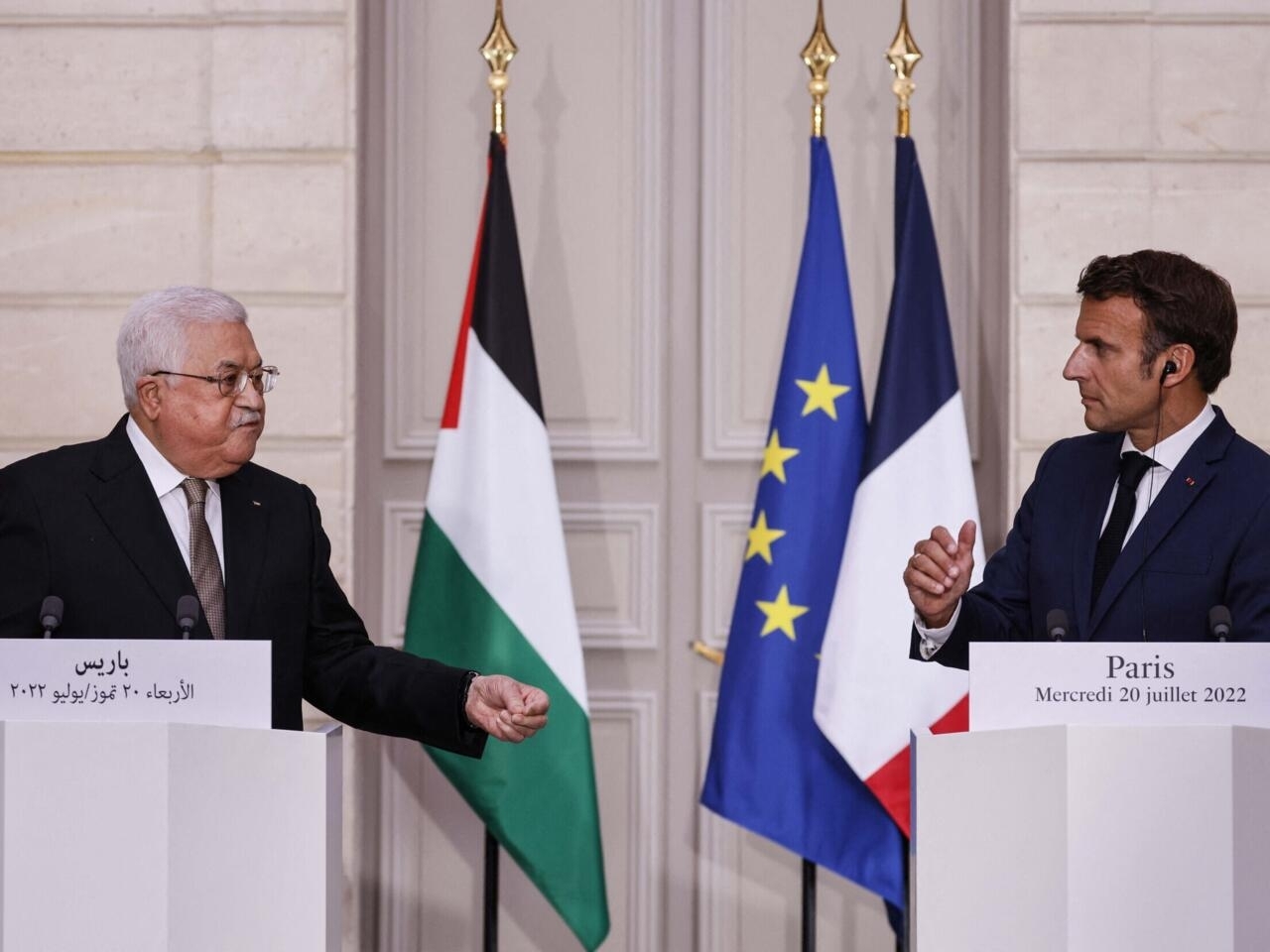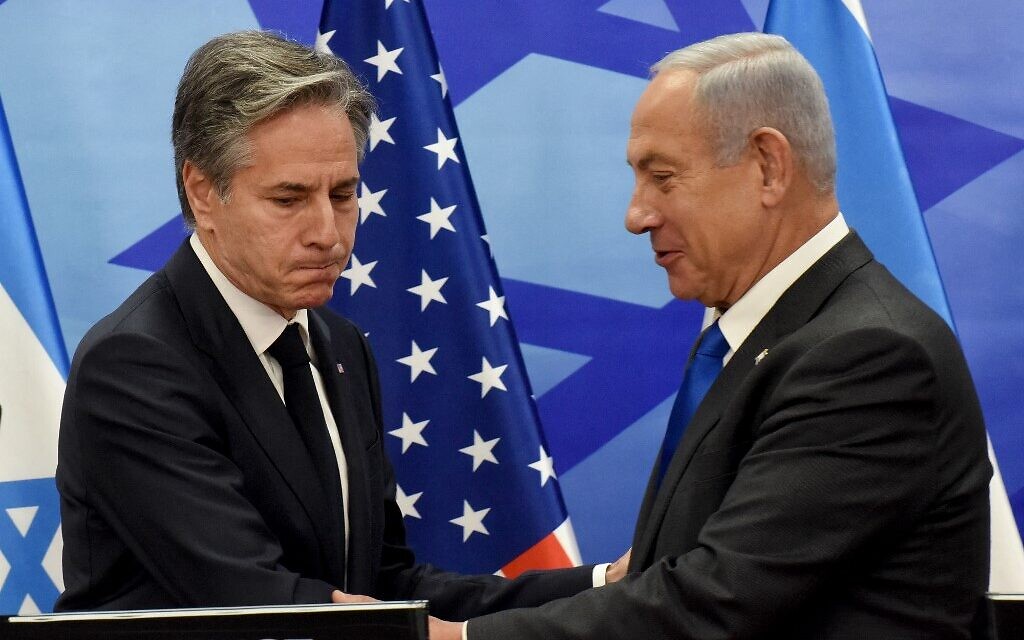Two rival Palestinian factions, Hamas and Fatah, have met in Beijing, China, in order to discuss reconciliation efforts between the two. The meeting in China follows a similar one in Russia that was held at the end of February.
Meetings of Reconciliation
Hamas and Fatah, perhaps the two most prominent Palestinian factions, met in China at China’s invitation to further reconciliation efforts.
“The two sides fully expressed their political will to achieve reconciliation through dialogue and consultation, discussed many specific issues and made positive progress, and agreed to continue this dialogue process with a view to realizing Palestinian unity and solidarity at an early date” -Chinese Ministry of Foreign Affairs Spokesman, Lin Jian
The meeting builds upon a wider push, both amongst Palestinian factions and outside players that offer support to the Palestinian cause, for unity between the various Palestinian factions.
These calls for unity have grown monumentally louder since the beginning of the present Israel-Gaza war with Hamas’ attack upon Israel on October 7th. After Israel’s response proved incredibly deadly and destructive for the Palestinians of Gaza, many Palestinian factions have called for unity in order to take a joint approach to general negotiations, and achieving statehood.

The meeting in China builds upon a previous meeting that was held in Russia at the end of February. This meeting produced a number of important things, however the most notable was by far the potential of the formation of a unity government of Hamas and Fatah.
A History of Rivalry
Hamas and Fatah are the most notable of the Palestinian factions, in particular of political groups.
Fatah heads the Palestinian Authority (PA), which holds partial administrative control over Palestinian areas of the West Bank. Fatah, and thus the PA, are headed by President Mahmoud Abbas, who is also the chairman of the Palestinian Liberation Organization (PLO).
Hamas heads the government in Gaza, where they have been in power since their election in Palestinian legislative elections in 2006. This election was for the Palestinian Legislative Council of the PA. Hamas won the election with a reported 44.45% of the vote, compared to Fatah’s 41.43%.
This vote technically put Hamas in power over the PA, as Ismail Haniyeh, the present leader of Hamas, became the Prime Minister and formed a new government. However, the vote was disputed by Fatah. The groups continually conflicted over the issue, before the conflict eventually turned violent.
In the resulting conflict, Hamas pushed Fatah out of Gaza, and solidified its power over the Gaza strip in 2007. In turn, President Abbas dismissed Haniyeh’s government in a move that was questionably legal, and Hamas was effectively removed from the West Bank.
Most of the world recognized the Fatah led PA government, and did not recognize Hamas’ government in Gaza. This left Palestine’s governance effectively divided between the two parties.
Conflicting Dreams
Although Fatah and Hamas are expressing hopes for unity, their expressions represent a large divide between different parties to the conflict for what the future of Gaza, and Palestine as a whole, will be like.
If Fatah and Hamas form a unity government, it will likely be within the bounds of the PA, much like it would have been before.
This dream of a Fatah/Hamas unity government conflicts directly with the idea that both Israel and the US has for the future of Gaza, which in turn also conflict with each other.
Israel has made it clear from the beginning of the war that one of its ultimate war goals is the complete destruction of Hamas, as both a militaristic and political entity. They have reiterated that this goal is not subject to negotiation, and it is an absolute for them. In addition to this, they have also stated that the PA will not hold jurisdiction over Gaza after the war, assuming an Israeli victory. Israel has stated that they will hold security over Gaza after the war is finished, and Hamas is destroyed.
This is in partial contrast to the US, an influential entity when it comes both to Israel and the conflict as a whole. While the US has espoused wishes for the destruction of Hamas, similar to Israel, they have stated their wishes for a reformed PA to hold jurisdiction over Gaza, in contrast to what Israel desires. Furthermore, they wish Gaza to be included in the eventual formation of a Palestinian state.

These three conflicting visions for Gaza, the future of Hamas, and the future of Palestine represent a rather uncertain future.
Notably, while the PA holds partial autonomy and authority over certain areas of the West Bank, they are deeply unpopular amongst the Palestinian people, many of whom view the PA as collaborationist with Israel, and accuse them of not doing enough to halt Israeli West Bank settlements, and abuses perpetrated by IDF forces in the West Bank. The popularity of a PA government in power of Gaza, with or without Hamas, is likely to also be unpopular.
China’s Rationale for Mediating the Meeting
The meeting that China mediated between Fatah and Hamas illustrates how the country is attempting to act as an impartial mediator to create a Palestinian state while also distancing itself from associating too closely with either group. For example, China announced the meeting during its Ministry of Foreign Affairs (MFA) daily press briefing on April 30th and made two posts on Assistant MFA Spokesperson DG of the Department of Press, Hua Chunying’s X account.
The MFA Spokesperson Lin Jian answered the question asked by a CCTV reporter: “sources said that the two Palestinian factions, Fatah and Hamas, held reconciliation talks recently in Beijing. Can you share some details?”
Lin said that the “Palestinian National Liberation Movement (Fatah) and the Palestinian Islamic Resistance Movement (Hamas) representatives recently came to Beijing” at China’s invitation to have a candid and in-depth dialogue on Palestinian reconciliation. The spokesman said that both sides expressed their political will of “realizing reconciliation through dialogue and consultation, discussed many specific issues, and made encouraging progress.” Both Fatah and Hamas agreed to continue the process so as to achieve Palestinian solidarity and unity “at an early date.” Fatah and Hamas appreciated China’s “firm support for the just cause of the Palestinian people in restoring their legitimate national rights,” according to the spokesperson. They also thanked China for its efforts to help enhance Palestinian internal unity and reached an agreement on ideas for future dialogue.
While China acknowledged the meeting through its MFA, it did not mention it in any of its state-owned publications, such as The People’s Daily and Xinhua, or propaganda-based outlets, such as the Global Times. China chose this course of action to show that it would shore up its image as an advocate and impartial mediator for the Palestinian people while also decreasing the chances it would be associated with either group. China’s actions fit into its overall strategy regarding the conflict in Gaza by providing the most support to the Palestinians without being seen as aligning too closely with any group.
Furthermore, the strategy also allows China to increase its influence among Islamic countries by showing it is on the side of the Palestinians and will advocate for the creation of a Palestinian state. For example, the announcement occurred the same day that China announced it had accepted the invitation to attend the Organization of Islamic Cooperation (OIC) conference in the Gambia on May 4th and 5th. China will send Zheng Jianbang, Xi’s Special Representative for China, to attend the meeting in the Gambia. Zheng can use the Fatah-Hamas meeting to further show that China can be an advocate for Islamic countries during the OIC meeting.


